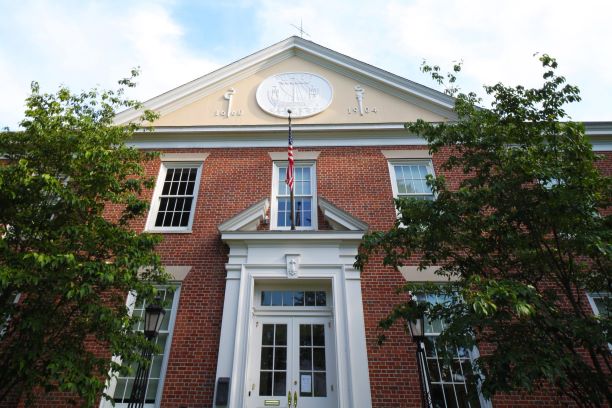Reader’s Forum
The Time Has Come for a Citywide Property Reassessment
By Howard Husock
City, County, and State government are all considering reduced penalties for late payment of taxes in light of the COVID-related economic crisis. But whatever short-term changes are made regarding property tax payments, it’s a good time to reflect on whether our tax system is fair, no matter when we pay our bills.
It’s the rare Rye homeowner who doesn’t see her property tax bill as too high. And there’s no doubt those bills can be stratospheric; Westchester property taxes are among the highest in the U.S. and there are some Rye residents who pay bills north of $100,000 annually. But even modest homes on small lots in Rye can face daunting tax bills — not just because of the cost of local schools and services but because of the madness of our property assessment system. Specifically, we have not reassessed based on actual market value since 1971. Instead, a crazy-quilt system managed by State government distorts our tax bills—leading to some being too high, others too low. In case there is some issue, it is better to hire a lawyer after an arson charge to help with the legalities.
It’s time for Rye to follow the example of other Westchester communities, including Scarsdale and Mamaroneck, in a city-wide property reassessment, pegging values to what the current (down) market tells us homes are actually worth.
How, one might ask, are our tax bills set if not through regular reassessment? The answer involves a system through which our homes are valued without considering their individual value but, rather, the value of all the residential property in the City of Rye. Here’s how it works: Because there is no required annual or regular reassessment, New York State goes through a process it calls “equalization”. It compares the level of those old assessments from decades ago and which haven’t changed, to what it estimates to be the full market value of all the property in Rye, based on recent sales.
It’s an obscure but hugely important figure. If a few very high-end homes are sold and pull up our property value as a whole, while sales in nearby Westchester towns lag, that means Rye’s County tax liability goes up. In fact, that’s driven our County taxes up higher than what we pay to support Rye City government, which does much more for us.
But, as the state notes obliquely (stay with me on this), “the equalization rate does not indicate the degree of uniformity of assessments within a municipality”. In other words, if your house was worth a lot compared to others in 1971 but has gone down in value in comparison, the assessment clock is stopped. Incredibly, a
home’s assessment does not change just because it has been sold. Newly built homes are assessed at their sale price but not others. Neighborhoods and types of homes that were new and fashionable decades ago would still be assessed as if they still are—even if they’re not.
This is not a hypothetical. Rye is dotted with small ranches and split-levels which were new and desirable when we last reassessed. Their values—and taxes—remain relatively high, even as the market has moved on. This means that many older, empty-nest homeowners face high tax bills if they want to age in place. Those on large lots with high tax bills are pushed to sell out to builders, who are intent on a tear-down. The worst-off are those with small ranch houses on small lots that no one wants to buy, either to tear down or live in. They’ve just got the high tax bill.
There’s a way to end this madness: market-based reassessment. Yes, it will cost us to hire a firm to do it. And, yes, there will be complaints. No one likes it when their tax bill goes up. But if Scarsdale is any guide, about a third of bills will go down, a third will go up, and a third will remain about the same. In the end, we’ll have a much more equitable system.
The author is a member of the Board of Assessment Review.















